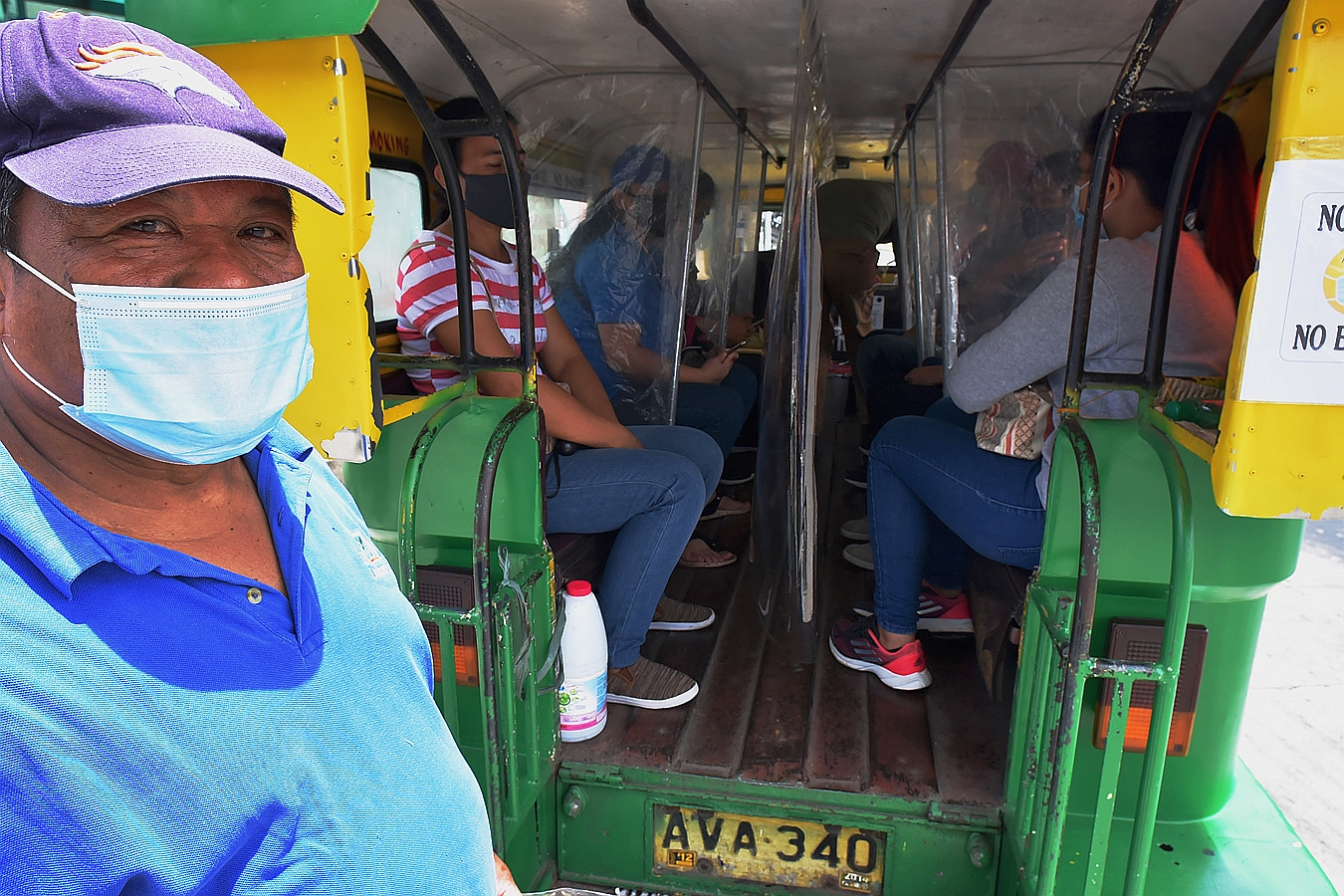Baguio council: LTFRB no longer controls city mass transport under MGCQ

SHIELDED TRAVEL. Baguio jeepneys have been outfitted with plastic compartments that shield passengers from each other, to comply with quarantine rules on social distancing. PHOTO BY EV ESPIRITU
BAGUIO CITY –– The deployment of public utility jeepneys serving Baguio’s daily workers is once again under the control of the city government, and not the Land Transportation and Franchising Board (LTFRB), under a modified general community quarantine (MGCQ), according to a June 4 resolution passed by the City Council.
Members of the council objected to a new LTFRB rule that requires jeepney drivers, who have been serving the city during the Luzon lockdown, to secure the agency’s permission.
As many as 516 jeepneys were granted special travel permits by the city police to carry passengers during the enhanced community quarantine (ECQ) from March to May. The same number of jeepneys have applied for LTFRB permits because some of the drivers have been accosted on the road by land transportation agents.
City Resolution No. 333-2020, however, asserts that LTFRB’s new guidelines for public transportation in areas covered by a general community quarantine (Memorandum Circular No. 2020-17) are no longer applicable to the summer capital after it transitioned from GCQ to MGCQ on June 1, according to a city council statement.
“During the deliberation, it was manifested that MC 2020-17… has already served its purpose and therefore the authority to control public transport is reverted to the Local Government Unit under its police power about the control and prevention of the coronavirus disease,” Res. 333 states.
“This also means that the volume of public utility vehicles needed in each route to cater to the riding public should be determined by the city,” the resolution says.
During previous council discussions on the resumption of mass transport, LTFRB Cordillera director Lalaine Sobremonte said the agency’s guidelines would continue to be enforced even under new levels of the quarantine.
Because of the quarantine rule on social distancing, all Baguio jeepneys have been outfitted with plastic shields and compartments that separate passengers, who are either headed for work or who have been designated to buy food and medicine.
Each jeepney may only carry half of its mandated load capacity.
Most of the city’s businesses have reopened since June 1, except for tourism and leisure enterprises.